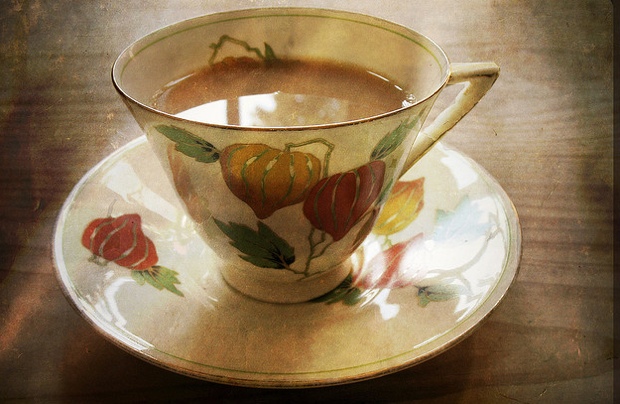You have no items in your cart. Want to get some nice things?
Go shopping
It’s the first time I’ve been inside the church, even though we live so close by.
I’m surprised by what I find. The exterior – the path lined with looming trees, a door with its paint flaking off, the lichen-mottled stone, the untamed ivy – all suggest gloom and dilapidation. Inside, it’s quite different. There’s an airy feel about it; the windows let in a surprising amount of light.
I walk slowly down the nave. “Hello?” My voice and footsteps echo, but there’s no other answer. I reach the transept and stand there for a moment. The place feels still, full of an old peace. It makes one almost wish that one believed.
“Hello, Agnes.”
I spin round. “Oh … hello, Reverend.”
“Julius,” he admonishes. He’s very modern, our vicar, insists on first names. “What kind of Christians don’t use Christian names?” is a favourite saying of his. It doesn’t go down well with some of the stuffier residents, but suits me fine.
“How are you, Agnes?” We know each other well, even though I never come here. You don’t live in a village like ours without knowing everyone.
“Oh …” I smile tightly. “Well enough.”
He moves towards me. He walks with a stick, a legacy of a rugby injury, but his movements are brisk. “How’s Thomas?”
“He’s … comfortable. Actually, that’s why I’m here.”
“Yes?” He peers at me. He has innocent blue eyes, and is handsome, in a sanguine way.
“Yes. He said he wanted to see you.”
“Well.” He smiles. “Shall we go?”
“Now?”
“Why not?”
Julius chats comfortably about nothing very much as we take the short walk from the church to my house. I make some vague replies, and manage not to talk about the thought that’s exercising me so: why would Thomas, a dedicated atheist for over 70 years, suddenly call for a priest? I wonder why Julius doesn’t mention it either. Perhaps it’s not so unusual. Perhaps Thomas is experiencing something akin to my feeling in the church earlier. Why not believe? Why not confess? What is there to lose?
“Would you like some tea?” I ask, as I hang up Julius’s coat.
“Perhaps later,” he smiles. “I’ll see Thomas first.”
I lead the way up the stairs and into the bedroom. Thomas is as I left him, propped up by pillows, his arms, so thin now, folded across his belly.
“Hello, dear. I’ve brought Julius.”
“Hello, Julius. Thank you for coming.” Fluid rattles percussively in his lungs as he speaks. “Just leave us a moment, would you, Agnes?”
I’m a little annoyed by his peremptory dismissal, but careful not to show it. Some people actually suggest I have the harder part of all this. That’s rubbish, and I tell them so. Thomas has so little time left; I can hardly blame him for being brusque.
I walk downstairs, into the kitchen, and put the kettle on. I bring out the teapot, and some loose leaf Darjeeling. A priest should have a proper cup of tea. I can’t help but wonder what they’re talking about. Of course, it’s probably that affair Thomas still thinks I don’t know about. He shouldn’t feel guilty about that. I forgave him years ago.
It’s a long time, over half an hour, before I hear our vicar’s ragged tread on the stairs. I meet him in the hall.
“Would you like that tea now, Julius? Actually, it’s probably rather stewed. But I could brew some more.”
He hesitates. “No, thank you. I’ve just remembered something I need to do. Back at the church.” He licks his lips. “I really should be getting on.”
“Oh … I see. Well, thank you so much for coming.” We shake hands. “Goodbye.”
“Goodbye, Agnes.”
I watch him through the hallway window as he walks up the garden path. He’s moving fast. Head bowed, back held high. Like a scuttling animal.
I want to run out of the house, chase the priest up the road, grab him, drum on the shield of his back with my fists. What did you talk about? Ask him why his eyes, which would not meet mine, were so full of horror. What did he say to you? What has he done?
I walk up the stairs, my legs and stomach like lead.
Thomas turns his head as I enter the bedroom. “Hello, dear. Thank you for fetching him.” He pauses, coughs. “I feel much better now.”
They say priests know more about wickedness than the rest of us put together. That they hear about it every day. And yet Julius’s hand trembled so when I shook it.
Thomas smiles, that same smile that swept me away, that night at the ball, so long ago.
“I’m glad you feel better, dear,” I say.
About Mark Engineer
Mark Engineer was born to an English mother and Indian father in Kuala Lumpur, Malaysia, where his grandfather was a leading diplomat. He spent his early years in India, and came to England in the late Seventies. Mark has had an itinerant life, holding down many jobs – journalist (with pieces in The Times and The Telegraph and, less impressively, Nuts magazine), recruitment consultant, door-to-door salesman and call centre worker, to name but a few. Some he has enjoyed, others he has hated, but none have inspired him half as much as creative writing does. He's now happily married, and settled in Hertfordshire. He's currently enjoying exploring the short form, while seeking that elusive publishing deal for his latest novel.





What would make a life-long atheist call for a priest on his death bed? Our #FridayFlash from J.M. Engineer. https://t.co/Vwv7vdGAZS
a brilliant little piece of flash fiction, here: https://t.co/ajeT4utAD5
Intriguing!